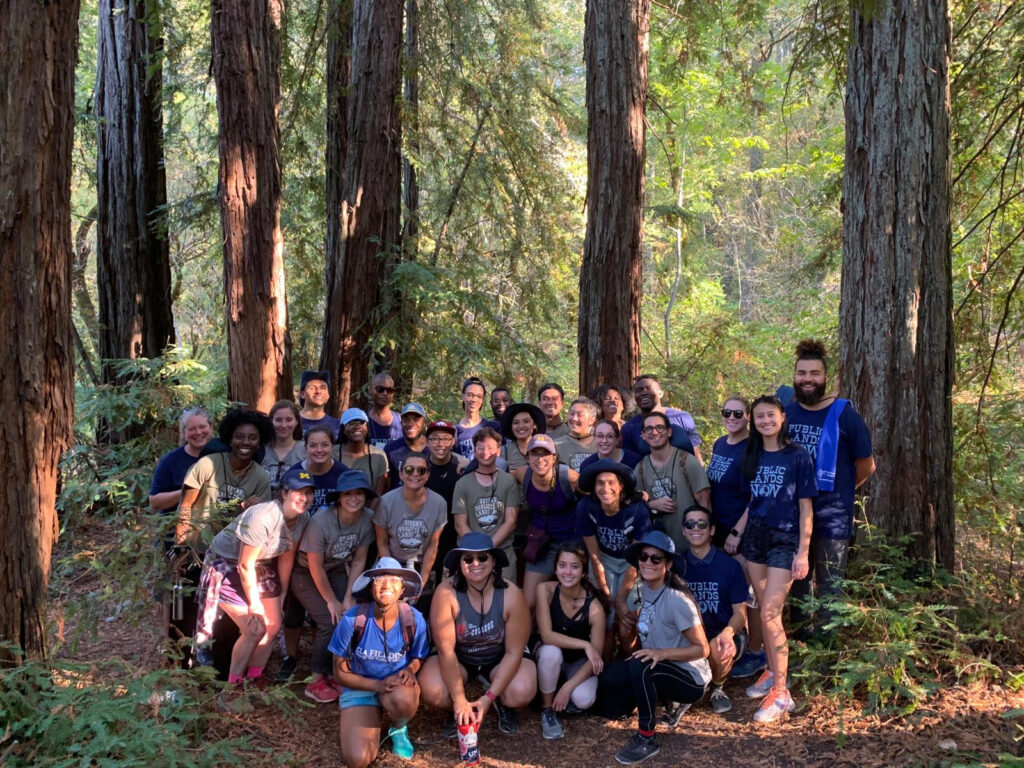Honoring Our Past, Looking to the Future – Reflections from the EGA Fall Retreat
November 1, 2019
EGA Retreat field excursion through the beautiful Napa redwoods.
Driving through Napa Valley, it’s difficult not to be mesmerized by the seemingly endless vineyard rows surrounded by the lush Vaca and Mayacamas mountain ranges. As I gazed upon the unique agricultural landscape, I couldn’t help but wonder how differently this place must have looked hundreds of years ago. What was life like in this valley prior to the European colonization in the early 19th century?
We received a glimpse of this during the kickoff to the Environmental Grantmakers Association (EGA) Fall Retreat. The Welcome & Sense of Place session was devoted to recognizing and paying respect to the Indigenous Peoples that were stewards of these lands for thousands of years.
The first settlers of the Napa Valley region, the Wappo, came to the area over 10,000 years ago. Scott Gabaldon, chairman of the Mishewal Wappo Tribe of Alexander Valley, welcomed us to the land and shared with us the history of his people. The Wappo lived in harmony with the land that they called “the land of plenty”. They were hunter-gatherers known for their skill in basketmaking. The current name of the tribe was given by Mexican missionaries that arrived in Napa Valley in the early 1800s. The term “Wappo”, which is an Americanization of the Spanish term “guapo”, was used to describe the bravery and beauty of the people.
The subsequent history of the Wappo, unfortunately, mirrors that of many indigenous tribes of the Americas. The violent colonization of the lands by Mexican settlers followed by forced relocations by the US government devastated the tribe. The population of Wappo that lived in harmony with the land for thousands of years diminished to only 50 surviving members in a matter of decades. They continue their fight for existence to this day in a brave battle against the US government for federal recognition. In spite of all this, Scott Gabaldon and the remaining members of the Mishewal Wappo Tribe continue to be stewards of the lands that sustain us.
All of this I learned in the opening hours of the Environmental Grantmakers Association retreat. It was truly a humbling and inspirational way to kick off what turned out to be an exciting few days of engaging dialogue, calls to action, radical new ideas, and fellowship. I have yet to be a part of a professional space that was so intentional about sharing history and honoring the land and its peoples. I think this is indicative of the values and commitment of the entire EGA staff and its members organizations.
As I reflect back on the retreat and the challenge placed before us to envision a radically different future, I am drawn back to the history of our ancestors. It was not too long ago that we lived in harmony with our natural lands and with one another. While our world today is more connected and our problems more complex, I believe we can reclaim this harmony. Like the Mishewal Wappo Tribe, I choose to fight for our future.
About Ta-wei Lin, MPH

